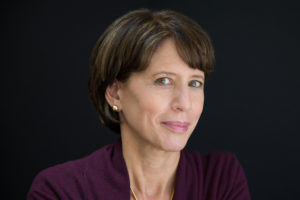Female physician anesthesiologists shouldn’t have to break a glass ceiling to achieve success. Women can stand shoulder-to-shoulder with their male counterparts with confidence and improved negotiation skills, according to Sara Laschever, M.A. Laschever is a nationally known expert on women and conflict resolution and the co-author of the influential books Women Don’t Ask and Ask For It: How Women Can Use the Power of Negotiation to Get What They Really Want.

Sara Laschever, M.A.
Armed with a fascinating trove of social science research and stories gleaned from hundreds of interviews, Laschever is one of two speakers at Tuesday’s session “Women Don’t Ask: Boost Your Confidence and Hone Your Negotiating Skills.” The session is designed to help female physicians build negotiating skills, reflect on their goals and challenges, share their experiences and actively prepare to negotiate for the resources and opportunities they need to succeed. Stephanie Byerly, M.D., an Anesthesiologist at the University of Texas Southwestern, will also speak at the session, which was organized by Anna Allred, M.D., an Anesthesiologist and Partner at US Anesthesia Partners. Laschever will address the barriers that hinder women from negotiating and asking for what they want.
1 – 4 p.m.
Tuesday
W209ABC
“Women are socialized from the time they are very young not to be demanding, pushy or aggressive, and many people perceive negotiation as an aggressive interaction. So girls and women often choose to wait to be offered things (raises, promotions, access to opportunities),” Laschever said. “Women also observe in the workplace that asking for what they want is often perceived as threatening and may elicit a negative backlash. Many conclude that they should just sit tight, be grateful for what they’re offered and not ‘rock the boat.’”
Additionally, Laschever says, women are often excluded from men’s social and professional networks – networks in which men share information about what’s available and what they could be asking for. As a result, women have a lot less information than men about what might be negotiable.
Laschever believes women can contribute positively to the culture of their departments, practices, research groups and institutions, and thus achieve their professional goals by developing an understanding of their own “value proposition” and learning how to identify and leverage important connections.
Start with looking at the goals and needs of “the other side,” Laschever recommends. To get what they want, women need to leverage their training, experience and talent to solve problems or promote the business goals of the organization, the professional goals of their boss or the plans for their department.
“Women have much more success taking a collaborative, problem-solving approach to negotiating. This involves asking a lot of questions, listening closely, sharing relevant information and brainstorming solutions that can satisfy the needs and goals on both sides of the table,” she said.
The next step, according to Laschever, is to ask for what you deserve. To do this, women need to research their market value and find out what other people are asking for and getting. With concrete data about what’s fair and appropriate, women feel more confident setting higher targets for themselves. Laschever recommends practicing the conversation through role-play with a trusted individual if the idea causes anxiety. Also, consider your timing.
“To be most successful in a negotiation, it helps to ask at the right time in the cycle (not two weeks after budget decisions have been made, for example), to avoid asking when the other person is in the middle of a crisis, and to ask in person (not on the phone or by email) in a place where neither side will be distracted, interrupted or self-conscious,” she said.
Return to Archive Index